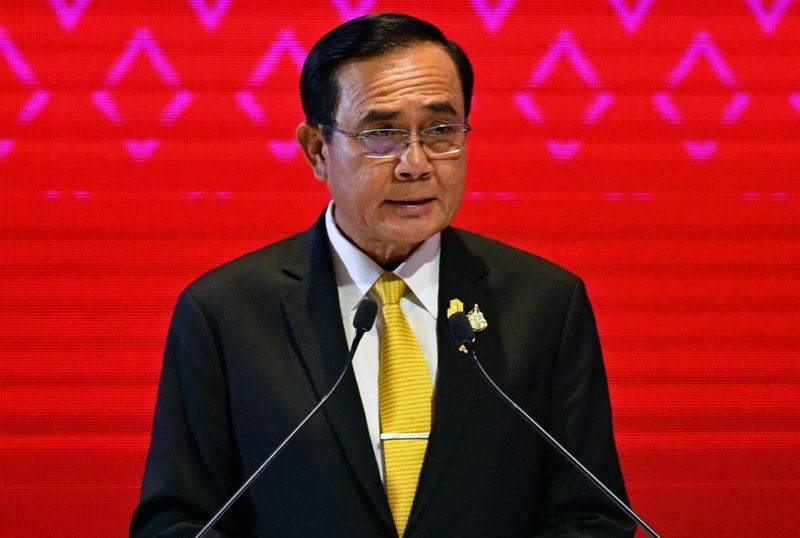BANGKOK (Reuters) - Thailand's prime minister and the army denied on Wednesday opposition accusations in parliament that the military targets political opponents and rights activists with online propaganda campaigns run from fake accounts on Facebook (NASDAQ:FB) and Twitter.
The accusations provoked Prime Minister Prayuth Chan-ocha to walk out of a heated parliamentary debate on Tuesday after a lawmaker of the outlawed opposition Future Forward Party presented documents that he said bore out the claims.
"I don't know about this, I don't have this type of policy," Prayuth told reporters on Wednesday, referring to the documents.
"We will investigate, but there is no policy."
The lawmaker, Wiroj Lakkhanaadisorn, had told parliament the documents showed Prayuth's government was funding military-run smear campaigns to systematically harass opponents and praise the government on social media.
He read from what he said were two leaked military memos that ordered army personnel to create fake social media accounts to "offer counternarrative" for criticism of the government.
Reuters has not examined the documents.
"The army works in the open and we don't use avatars," Lieutenant General Thanya Kiatsarn, of the second army area command, a unit the opposition said figured in one of the memos, told the Khaosod newspaper.
Some soldiers may be using social media to defend the reputation of the military but the effort was not centrally organized, he added.
Facebook and Twitter did not immediately respond to emails to seek comment.
Prayuth's coalition majority was strengthened by the disbanding last week of Future Forward, the third-largest party in parliament, on the grounds that the party breached the law when it took a loan from its founder.
The dissolution has sparked daily protests among university students who are among the party's most vocal supporters.
Following Friday's court ruling to dissolve the party, its members have launched a string of accusations against Prayuth and the former military junta he led for five years before elections in 2019.

The ruling banned from politics 11 party lawmakers who lost their seats, while giving the 65 remaining MPs 60 days to either form a new party or join an existing one.